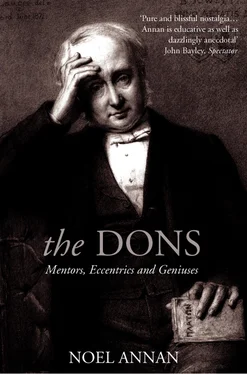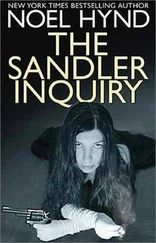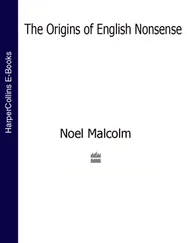And so the notorious English specialism in secondary schools took root. Boys and girls chose which way they would jump as early as fourteen; and at fifteen opted either for maths and science or for the humanities. If for the latter, they never opened a maths textbook again. The system suited the dons: boys and girls arrived at the university knowing something about the scholarly debates in their specialism. It suited the professions: after leaving school a doctor could qualify in seven years, a lawyer in six. It suited the Treasury because the first degree took only three years. Boys and girls were content: no longer would those with a mathematical block have to try to master the calculus.
But did it suit the nation? During the twentieth century the complaints grew. Industry complained that graduates in science and engineering had such narrow minds, and commerce that arts graduates were innumerate. Even the Civil Service at last rebelled. They rebelled because critics argued that the skills which a civil servant needed at the end of the twentieth century were not tested by the kind of examination so dear to the hearts of the dons. In the nineteenth century the dons had got government to agree that entry to the public service should be met by a competitive examination on the same lines as the final examination in the universities. At one time all you had to do was to reproduce in the Civil Service or Foreign Service exam those qualities that had won you high honours in the university; though it must be said, you had to pass an interview. From time to time variations were introduced; and your examiners, who were dons themselves, might not sympathise with the spin that you put on your answers to questions. (When Keynes sat for the Civil Service exam he got his lowest mark for economics and as a result entered the India Office and not the Treasury.) No one dissented from the principle. It seemed self-evident-to Macaulay, to Charles Trevelyan, to Jowett and the younger dons. So indeed it seemed until the very end of the twentieth century.
The second legacy was the primacy of the tutors. Jowett’s reign saw the end of the old catechetical college lecture (in reality a class construing a text) and the rise of the tutorial. In 1869 the History Tutors Association formed: they arranged the lectures, supplied the examiners and determined what was to be taught. The professoriate was outflanked. Clerical fellowships declined: colleges did not want fellows who had an eye on the next benefice on offer.
There grew up in Oxford and Cambridge a posse of dons, often young bachelors, who like Jowett knew something of all of their men and a lot about some of them. At Balliol, it was noted, it was ‘possible for a tutor without taking Orders to be virtually a minister of religion’. An observer writing in the Church Quarterly Review thanked God for the work of John Conroy, a science tutor at Balliol, and for H. O. Wakeman, tutor at Keble; and at Balliol T. H. Green and Nettleship were renowned moralists.
Not everyone saw college tutors as deutero-clergymen. ‘They sit in their comfortable rooms and do nothing except cram in Latin and Greek for examinations,’ wrote one critic in the Nineteenth Century , and another in the same year, 1895, depicted the modern don as ‘an open derider of religion’. All was not well with Oxford, and the university had its critics in London. In 1866 Jowett was lamenting that not a twentieth part of the ability of the country came to the university, and Pattison two years later echoed him. An odious comparison was made between Oxford and the Grandes Écoles, in which Oxford was compared to ‘a great steam-hammer for cracking walnuts’. But then, as the Saturday Review observed, what was one to say when the Provost of Oriel said that Oxford existed to provide curates, not solicitors or surgeons? With the collapse of college incomes in the eighties fellowships became less attractive. Those formerly devoted to research were diminished or abolished. This in turn led to dissatisfaction among the college tutors, who now saw themselves as less well-paid than public schoolmasters with little leisure to pursue learning, compelled every year to begin teaching the same subjects to a new set of students. When in the past young dons taught for a spell and then left to fill college livings, they did not grow stale; but after twenty years the college tutor became dull and dispirited.
For a moment it looked as if the pendulum might swing back against the tutorial system. When Jowett died his natural successor in the college was not chosen. The Balliol dons imported a Scots philosopher, Edward Caird. But fourteen years later, when Caird resigned, the natural successor came in. He was, like Jowett, a bachelor. Strachan-Davidson had been senior Dean for thirty-two years and was the idol of the undergraduates, particularly of those whose frolics and way of life, so different from his own, he tolerated. Balliol was to become the home of many tutors famous in their day, such as Cyril Bailey, though perhaps the best known was Francis ‘Sligger’ Urquhart, at whose austere chalet in Switzerland reading parties met in vacation. Urquhart was not an intellectual. He emanated a stream of gentle sympathy that brought others out. At the end of Lindsay’s twenty-five-year mastership of Balliol Lindsay said, ‘The place exists and I hope always will exist, for the young men.’
*Augustine Birrell (1850–1933), man of letters and liberal minister for education and later Chief Secretary for Ireland (1907–16).
*Sir Charles Dilke (1843–1911), Liberal minister for local government (1882), withdrew from public life after Mrs Crawford (his sister-in-law) declared she had committed adultery with him – which he denied. Married Mark Pattison’s widow in 1885. Returned as an MP in 1892 until his death.
*Edward Eyre (1815–1901), Governor of Jamaica, put down riots by the black population in the island with great brutality: defended by Carlyle, prosecuted at the instigation of J. S. Mill, Huxley and Herbert Spencer.
CHAPTER FIVE The Don as Scholar – Frederic Maitland
Trinity is the greatest and grandest of all Cambridge colleges and in science the intellectual power-house of the university. It was the home of Newton and of those formidable classical scholars Bentley and Porson. But though Cambridge was spared the bitter divisions that split Oxford, it too became embroiled in similar political and religious controversy. By tradition Cambridge was a university of the Whigs, but in 1831, as the nation was rocked by the debates on the Reform Bill, the true sentiments of the dons became clear. The Whigs – a young Cavendish who had become second in the mathematical tripos, and young Palmerston – lost their seats in Parliament. The Master of Trinity, Christopher Wordsworth, deprived Connop Thirlwall, the outstanding young theologian of the day, of his assistant tutorship. Thirlwall had come out in favour of admitting Dissenters to Cambridge and had questioned the merit of compulsory attendance in chapel. Wordsworth did not stop there. He let it be known that, had he had the power to deprive Thirlwall of his fellowship, he would have done so. That was too much for the fellows of Trinity. They gave Wordsworth such a hard time that he found life in the Lodge as Master unendurable. But Wordsworth was not a man to give an inch to his enemies. He timed his resignation skilfully. The mastership of Trinity is a Crown appointment, and Wordsworth was determined that he should not be succeeded by the notable liberal and popular professor Adam Sedgwick. Watching the smoke signals from Westminster as keenly as any bushman, Wordsworth perceived that Melbourne’s administration was tottering and he waited until Peel formed a Tory government. Peel did not disappoint him. He nominated William Whewell as the next Master.
Читать дальше












